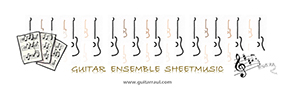Gregory David Diamond
https://scholarship.miami.edu/dis
Throughout the history and evolution of Latin jazz, Afro-Cuban jazz, Afro-Latin jazz, or any of its variants, the guitar has for the most part remained at the periphery as an instrument of harmonic, melodic, and rhythmic utility. In addition to this there is little, if any, pedagogical material that covers the subject of the guitar in a Latin jazz context. Most of the pedagogical resources and scholarly research today focuses primarily on instruments such as piano, bass, and percussion, as these are instruments that are inextricably entwined within the Afro-Cuban musical tradition and lineage, and are still to this day the main instruments of choice in most Latin jazz or Latin-inflected jazz groups. However, the electric guitar is proving itself to be an instrument of noteworthy versatility and in recent years has been positioning itself as a formidable contender in the general main-stream jazz panorama. The overarching issue at the fore of this discussion is whether or not the guitar can effectively become a germane player in this increasingly eclectic genre, and whether or not it can also help shape its trajectory moving forward. The focus of this paper will be on the exploration into the adaptation of different facets of the Cuban son tradition for jazz guitar, taking into consideration its harmonic, melodic and percussive properties, and in so doing, this paper will also explore and create new hybrid forms based around these traditions that can be applied in a performance setting.
The Continuation of a Lineage: Applying The Afro-Cuban Son Tradition to Contemporary Jazz Guitar





